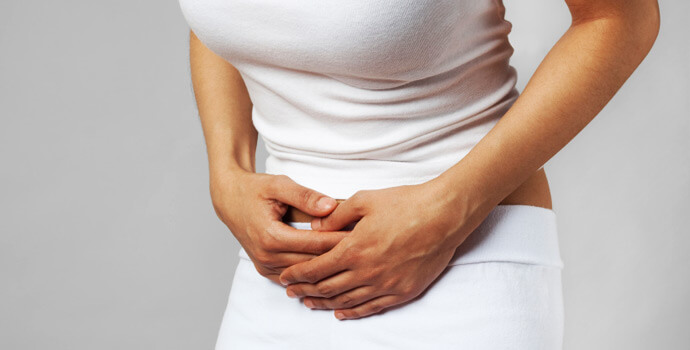Urinary infection is the inflammation of the organs of the urinary system, which are kidneys, ureters, bladder and urethra. It is caused by microorganisms −bacteria, fungi, viruses or parasites, and it is often associated with irritative symptoms, such as burning during urination, fever or change in the appearance of urine.
Depending on where the infection is located, it will manifest as:
Cystitis: It is the inflammatory process of the bladder. It is frequent in women. When it is acute, it means sudden or severe. It is characterized by intense burning, increased urinating frequency, incontinence of urine or, not as often, the appearance of blood in the urine (hematuria).
Prostatitis: It is the acute inflammation of the prostate usually caused by the presence of infected urine in the prostate tissue. The common symptoms are fever, burning and difficulty in urinating and perineal pain −pain and weight sensation between the testicles and the anus. Chronic prostatitis is also a frequent form of presentation, and it manifests as recurrent episodes of urinary infection and less severe symptoms.
Acute pyelonephritis. It is the inflammation of the renal pelvis (high urinary tract) and the kidney caused by an infection. It is characterized by unilateral or bilateral lumbar pain of one or both kidneys that can extend to the lower abdomen along with fever, chills, nausea and vomiting. It can be associated with cystitis.
What symptoms does it present?
Urinary urge: a sudden and almost irrepressible desire to urinate.
Pain or difficulty urinating.
Polaquiuria: increase in the frequency of urine with small amounts.
Pain in the lower abdomen.
If these symptoms are accompanied by fever and lumbar pain, you may be suffering from a kidney infection known as pyelonephritis. As in any infectious process, it is essential to identify the germ that causes it to attain a more effective treatment. In the case of urinary tract infections, urine sediment and urine culture (UC) are the most effective tests. In acquired urinary tract infection, the most frequently isolated microorganism is called Escherichia Coli (80%).
What exams are needed?
It may vary depending on the severity of the symptoms. Normally, a diagnosis can be made with just questioning and judicious medical assessment without complementary tests. In contrast, there are situations in which specific tests must be done to confirm the diagnosis and the severity of the infection.
The main test is urine sediment. According to medical criteria, it will be decided if it is necessary to culture the urine with antibiogram, ultrasound of the kidneys and the urinary tract, tomography of the urinary tract or DMSA renal scintigraphy. It must be borne in mind that each case is different and, therefore, the clinical judgement prevails to decide if additional tests should be done.
The possibilities of developing a urinary tract infection may increase with the following factors:
– Change in the sexual partner in recent months.
– Use of spermicides.
– Having previously had a urinary infection.
– Advanced age.
– Female sex due to the anatomy of the urethra.
– Kidney stones.
– Being a urinary catheter carrier.
– Previous spinal cord injury.
– Urinary incontinence.
– Obesity.
– Diabetes.
– Any alteration in the anatomy of the urinary system that alters the flow of urine.
– Older age, especially people with reduced mobility.
Which is the treatment?
Depending on the germ that causes the infection −which commonly are bacteria, the infection will be treated with antibiotics. If the person who presents the symptoms is a woman, it must be considered if she presents vaginal discharge, since she must receive especial treatment for this. It is not recommended to take antibiotics without medical prescription as it causes bacteria to become more resistant to them. It is important to finish the complete antibiotic treatments.
Prevention.
The main defense mechanism of the urinary system is the periodic emptying. For this, two basic measures are needed: drinking lots of fluids and urinate. The patient will be advised to drink at least 2.5 liters of water per day and empty the bladder every three hours during the day. Other measures that are especially important in women are urinating and cleaning the genital and anal area before and after sexual activity. Avoid the excessive genital hygiene and avoid the use of spermicidal creams. After using the bathroom, genital and anal area must be cleaned from anterior to posterior area. Avoid tight pants and wear cotton cloth underwear. You can drink cranberry juice, vitamin C or natural products although it is not applicable for all cases. Drinks or any kind of fluids which may irritate the bladder, such as alcohol or caffeine, should be avoided. If you have had at least three episodes of urinary tract infection in the last year, you should ask your doctor in order to decide if antibiotic is needed prophylactically. Some people present UTIs that keep coming back or are not eradicated by treatment. These are chronic urinary infections. In these cases, the patient may need antibiotics for a prolonged period (perhaps up to 6 months to 2 years), or stronger antibiotics may be prescribed.
At Gran Alacant family doctors we have a health unit with multilingual and multicultural professionals at your service. Fore more information v



